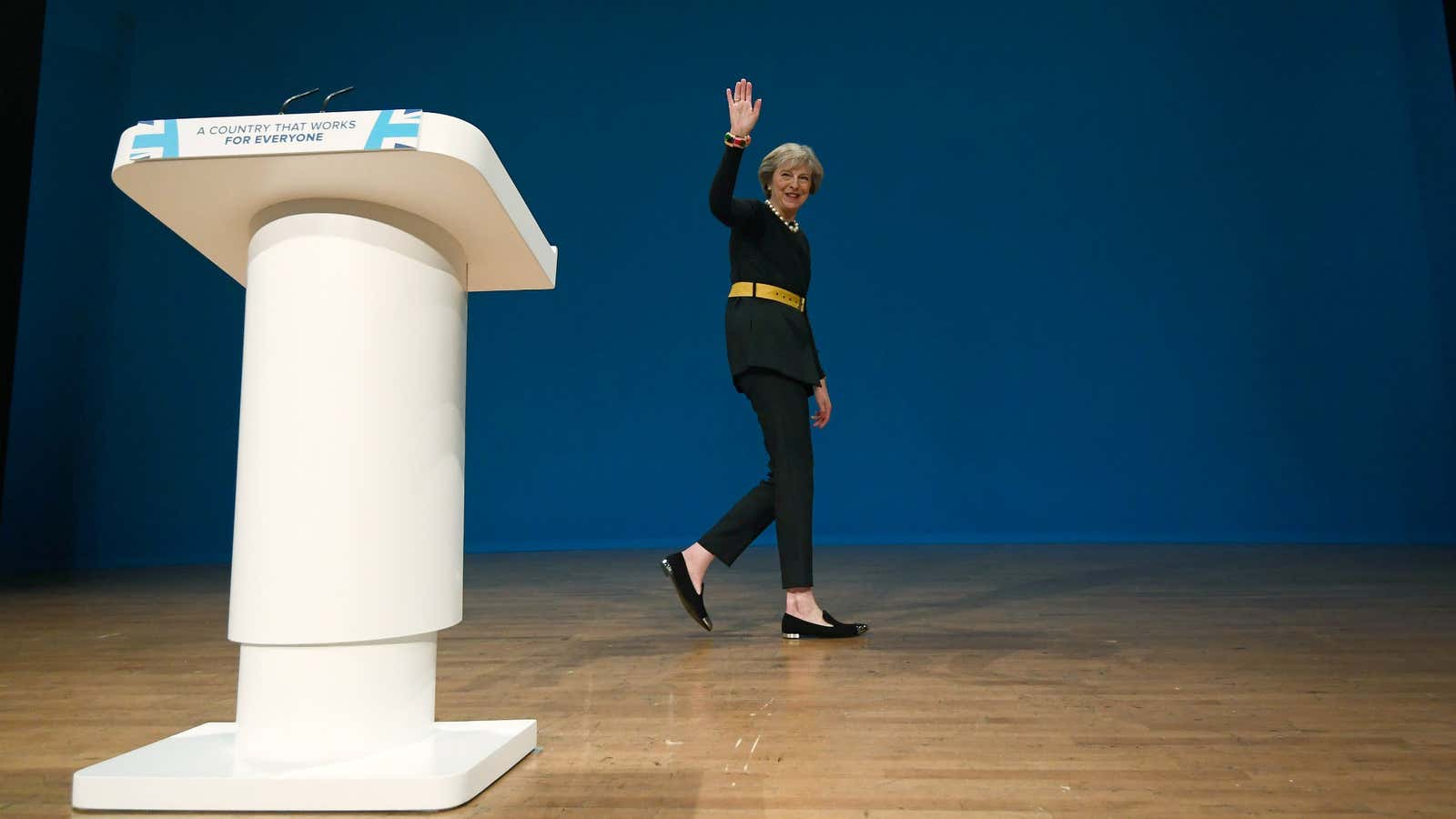British prime minister Theresa May said Oct. 2 that she would officially start the process for Britain’s exit from the European Union no later than March 2017. When traders got to work on Monday morning, they promptly sold the pound, pushing the currency down to fresh post-referendum lows versus the dollar.
Since the vote to leave the EU on June 23, the pound has lost around 14% of its value versus the dollar, and hasn’t performed much better against the euro. Until yesterday, the most clarity May provided about EU exit negotiations was to stress that “Brexit means Brexit.” Now that she has revealed a timetable for triggering Article 50, the part of the EU treaty that sets a two-year deadline for members to negotiate their departure from the EU, markets have better information.
Investors have concluded that this is a bad thing for sterling.
The UK economy defied the gloomiest predictions for an immediate tumble into recession following the Brexit vote, but big businesses have stressed that future investments in Britain depend on the details of its trading relationship with the rest of EU after it quits the club. In other words, an acute economic shock has been avoided, but longer-term damage may follow, depending on what sort of trade deals the UK signs after it becomes “a fully independent, sovereign country” again, to quote May’s words.
A so-called “hard Brexit,” in which the UK no longer has tariff-free access to EU markets, is the worst-case scenario for British exporters. They will now watch the news closely for signs of compromise on retaining some form of privileged access to the EU, which buys more than 40% of Britain’s exports. In the meantime, there is little solace from the likes of foreign secretary Boris Johnson, who has spelled out Britain’s policy as “having our cake and eating it.”
Many experts believe that the UK will not be able to cherry-pick aspects of its previous EU arrangement to suit its whims. “They cannot be allowed to enjoy the benefits of membership, like participation in the single market, without accepting the responsibilities, like paying into the EU budget and accepting free movement [of people],” says Charles Grant of the Centre for European Reform think tank, in a new note on the EU’s “hard line” negotiating stance.
As the official date of Brexit approaches, and it looks more and more like a “hard” break from the EU, the pound plumbs new depths.
